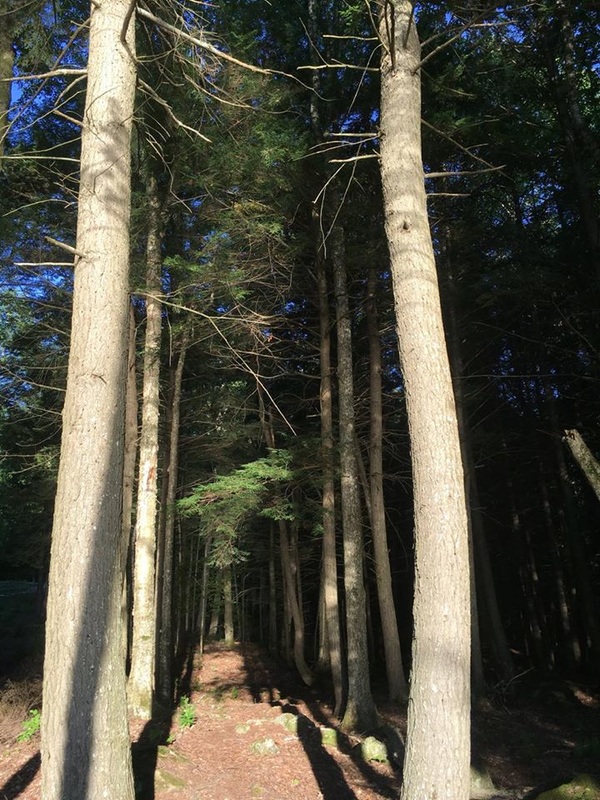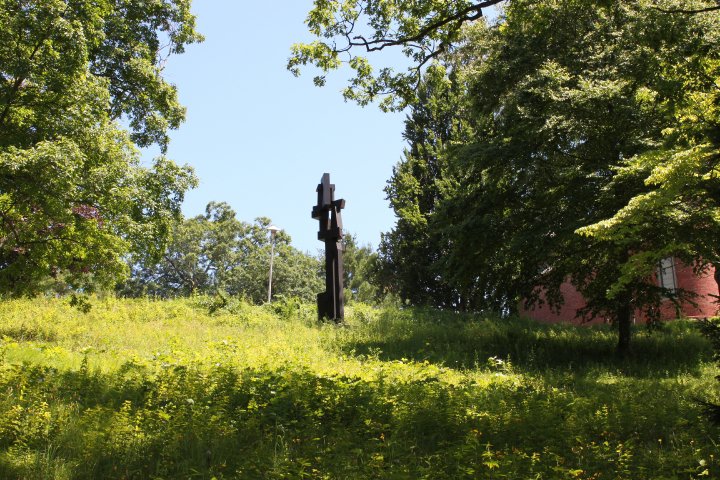All is suddenly quiet at the parsonage. My wife is off to work, Son #1 is off at college, Son #3 is having his first day of school. Son #2 is about to get some work done in preparation for his first day of classes next week. My plan is to have some coffee before the weather becomes inhumanely hot. Then I will settle in to the second day of catch-up on my third most pressing sabbatical project...Dungeons and Dragons world building. You see, the youth groupers have been asking for a D&D (or more generically "role-playing") club for a long time and we--the pastoral staff--just haven't been able to find the time for the basic preparation necessary to get a solid, believable game going. Both I and my former intern (now sabbatical pastor) Shane Montoya have plenty of experience in this area. There is a story line to be developed, of course, and a dungeon or whatever seeded with badies. However, the story has to take place in context and that is where it becomes tricky. A good game needs geography, politics, and religion. It needs characters with motivations and depth well past what is provided in a 90-minute action movie or even in the most well-developed fantasy video game. It needs a world at least as complex as a quality novel. In some ways (because the players can literally travel anywhere) it needs to have eternal potential for even greater complexity. So that is what I am doing. I am building a world (part of one, actually). I have been doing this sort of thing since my very early teens. Back then, it was out of necessity. It may seem strange to my younger readers but Gen X (and older) nerds know the situation I was in. I was an early adopter of Dungeons and Dragons. I loved it. Even today I occasionally drag out my old Basic and Expert books just to experience a wave of happy nostalgia for a less complicated time. It was my refuge. It was my permission to dream. Still, there were a series of hurdles to clear before actually playing the game. The problem, quite simply, was that D&D was the ultimate badge of awkwardness. Nerds are kind of cool now (okay..."geeks" are cool...whatever posers) because some of them now make money. Society says money is magic. Back in the Lord-of-the-Flies '80's, though, it took courage to spend a day rolling the dragon dice or discovering the inner workings of your Commodore 64. Personally I wasn't so much brave as fatalistic. There was no way I was ever going to be the cool kid. I had bad skin, a bad haircut (until I stopped cutting it entirely), and I went to prep school where I loved the theater. Many of my nerdy friends, however, harbored dreams of acceptance and were fearful of what the game might do to their (frankly non-existent) cool points. Even today I know 45-year-old men (and some women) who I am certain played but who will deny it. It is their secret weakness. It is still their hidden curse. Needless to say, back then it was hard to get a game together. Sometimes I would manage to get a ride to a game shop a few towns over and play with a group of kids I didn't know so well. The big draw was that the Dungeon Master wrote modules for Iron Crown Enterprises. No. I won't explain what that means. Either you understand or you don't. Most of the time, however, I had to badger my cowardly friends or indoctrinate my (much more willing) brothers in order to get a game in. This meant I was always the DM. I was the one who ran the game and did the extra work well before the others would arrive. I resented it at the time. I still do, actually. Still, those hours spent on my own fantasizing about other imagined places has come in handy over the years. The various "pantheons" of gods and goddesses got me interested in actual religions. The vagaries of the always-inadequate alignment system got me interested in ethics (I mean, who ever actually believes that they are the evil ones?). The game play was a combination table-reading/improv (with a touch of randomness from the dice) that got my creative theater juices flowing. It also let me make something and share it. I cannot write a novel or a play, but I can create a place where novel-like stories can happen. This may not be "cool" in the middle and high school sense, but it certainly is cool in every other way. Anyway, I have been making a new world. My old ones are rushed and inadequate. It is hard work, actually. To be believable, things need to connect in believable ways. For example, in an action movie the bad guy can always be crazy. In a game where most of the imagined population is rational, that doesn't work. Crazy-evil makes it hard to get followers, after all (don't yell "Trump" at me...please). If people are seeking power they are going to gravitate toward a rational power-seeker. A strongman, maybe, but not the cackling cartoon psychos that TV cops and superheroes take down on a regular basis. The questions one has to answer in the game world are the same sorts of questions we would ask about a culture in our world.
Interestingly, the questions I ask now are different from the ones I used to ask. Times have changed, haven't they? So this new imagined world is built around a question I have had for some time. What would happen if you had a group of people who constantly talked about their god? What if they read his/her/its sacred texts and disagreed over their meaning but who tried to live their lives based on what they felt they knew about this god they cannot see? Was this person they follow a god? A prophet? A good (or bad) myth? A Metaphor? In role-playing games the gods are just knocking around, granting spell powers and so on. To have an absent one is a big deal. Perhaps up to this point, things make sense. What if we took it a step further? What if at some point that "god" (or myth or metaphor or prophet) returned and started doing stuff? What if it refused to clear up doctrinal conflicts? Who among the believers (or suspecters) would be the most disappointed? Who would be happy? Anyway, that is the starting point. Then there are questions of economics. What do these people do for work? Where do they live? There are questions of politics, too. How do they get on with other people from other more (in game) conventional faiths? What is the role of women? What about the LGBTQIA+ community? It's my world. I can make it how I want it. How are they organized from family, to work, to "church", to government? How are the people around them organized. That is how the world grows. There are a bazillion questions. It isn't ever finished and much of its development depends on gamers playing through and asking their questions. Still, a lot of groundwork needs doing before that player characters ever meet in the ubiquitous back-road inn. Now, I know that many of the people who play the game probably won't notice the work that went into it. They shouldn't. The world should be lived-in and seamless. Besides, most of them will just want to kill monsters and rack up "points" like it is World of Warcraft. That is fine. However, I will know what is there, and a few players might even take an interest. You make a world to answer your own questions. You draw a map because you want to know what is behind (or under) the mountains. Others participate as they are willing or as they can. I have to go soon so I will stop here. Shane is helping me with the game mechanics as I drift into story teller mode, so I have deadlines. No doubt you will hear more about this as time goes on. Or...you could just show up for a game or two...
0 Comments
Leave a Reply. |
Adam Tierney-EliotThis is my old weblog of many years. I will probably post here from time to time is there is a subject that does not fit WWG. However WWG is the more active page at this point. Archives
April 2022
Categories
All
|



 RSS Feed
RSS Feed